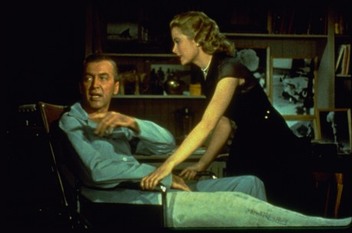 Charles Harris So far we've planned and drafted a new screenplay, and revised it for structure, character and scenes. Now it's time to turn to the dialogue. By leaving the dialogue so late, we can be sure that we'll be making the best use of our time. There's no point fiddling with lines in scenes that may get cut out of the final script, or for characters who may disappear. Dialogue is an important part of your screenplay. Good dialogue will lift a good story and characters onto a wholly new plane. But good dialogue also comes from character and by now we should have a much clearer idea of what makes our characters tick, and what each scene is about, so dialogue becomes much easier to edit.ajor Dialogue Flaws to Check For The 8 major dialogue flaws The best way to warm up for your dialogue edit is to read and listen to the best dialogue that's been written. There's no substitute for reading great scripts - also read bad scripts so you can recognise the main faults! Now go through each scene in turn looking above all for the following: 1. Inactive dialogue Drama is action to overcome an obstacle in order to achieve a goal. All too often, you'll find that characters speak for no good dramatic purpose. Cut out padding, such as repeated greetings, goodbyes and space-fillers that don't push the story forwards. Make sure that each line comes out of the character's desire to have an effect, most often on one of the other characters in the scene, in the face of difficulty, often provided by those same characters. 2. Lack of realism In most genres, dialogue should appear realistic. Of course, in real life speech is rambling, broken up, unclear and generally disorganised. So what we're looking for here is to give a feeling of reality, while also tidying the lines up so that they can work on screen. 3. Vagueness Similarly, cut out any lack of clarity. People may not be clear in real life, but they are generally trying to express their meaning as precisely as they can, given their abilities. 4. Attacks of the dots... In an attempt to look like real dialogue, many beginner writers resort to an attack of the dots... That is to say, each line trails off in a.... People never quite finish their... Every sentence never quite reaches its... This is a fudge and sucks energy from your screenplay. Eliminate the dots except when absolutely necessary...! 5. No subtext Good dialogue has hidden meanings. Watch out for on-the-nose lines which wear their meanings on their sleeve and try to reveal those meanings instead through subtext. In 'Juno', when Juno tells Bleeker she's pregnant, he simply says "I guess so.... What are you going to do?" No long speech could so neatly sum up his inadequacy. What he doesn't say says more than what he does. And that "you" speaks volumes too. He's passing everything onto her. (Read the whole screenplay here) See if you can let the audience understand what the characters are thinking through what they don't say as much, if not more, that what they do. 6. Going round in circles Early drafts often contain lengthy passages while the dialogue tries to find its way. Cut the filler. Dialogue such as: Let's go out. I don't know. I want to go out. Let me think about it. It'd be more fun than staying indoors. I'm exhausted. Can simply become: Let's go out. I'm exhausted. On a similar theme, look out for what I call "ping-pong." It's tempting to write in alternate lines - character A answering character B who then answers character A. But this becomes rapidly tedious and flat. Try removing the "ping" (or the "pong"). Have questions remain unanswered. And answers unprompted by a question. You'll be surprised how much your dialogue perks up and gains in liveliness and unpredictability. 7. Cliche Cliched lines really drag down your script. Cliches are imprecise, so they have an effect of blurring the story and sucking interest from your characters. It's easy to fall into such writing, because the lines seem to work superficially, but try to hunt them down and find fresher and more interesting ways for your characters to speak. Listen to how people speak in real life. Becoming an adept eavesdropper (and keeping notes where possible) is a vital skill. 8. Functional dullness Many scripts get written, and even produced, whose dialogue is totally functional but simply dull. Film and TV should be entertaining. So try to write lines which are aesthetically pleasing. A nice turn of phrase, an unusual metaphor, a crisp witticism. They all help keep the story moving and add to the fun of reading the script - and watching the movie or programme when it's finally made. Now you're motoring! Take your time. By the time you've finished this mini-draft, your screenplay should be really motoring. We have just two mini-drafts to go. Next time - all the bits that aren't dialogue: the descriptions. <Previous article Next article> Charles Harris new book Jaws in Space: Powerful Pitching for Film and TV was published last month by Creative Essentials and is already recommended reading on MA courses. You can buy it on Amazon or order it here and get the e-book version included for free.
1 Comment
|
BLOGTHE ONLY PLACE TO TALK ABOUT THE CRAFT OF SCRIPTWRITING.
|
Privacy Policy © Euroscript Limited 2020

 RSS Feed
RSS Feed


